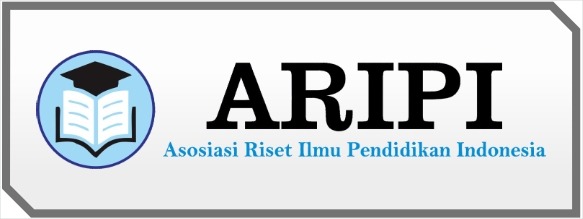Bridging the Digital Divide: A Narrative Review of Teacher Professional Development in the 21st Century
DOI:
https://doi.org/10.61194/education.v2i3.699Keywords:
Teacher Digital Competence, Professional Development, Digital Education Policy, Education Reform, Digital Divide, Hybrid Training, School LeadershipAbstract
The rapid digitalization of education has placed new demands on teacher competence and institutional support systems. This narrative review aims to synthesize empirical evidence on digital competence development among teachers and analyze the systemic factors that influence the success of training programs. A structured literature synthesis was conducted across peer-reviewed sources focusing on digital readiness, training models, infrastructure, and policy frameworks. Findings reveal significant disparities in digital competence influenced by teacher age, region, and educational level. Teachers in urban settings generally demonstrate higher digital skills due to better infrastructure and support. Systemic barriers such as limited funding, rigid organizational structures, and inadequate policy backing contribute to uneven training outcomes. However, programs that integrate technical, pedagogical, and content knowledge (TPACK), with sustained mentoring and reflective practices, show considerable promise in improving digital integration. School culture and leadership further impact teacher confidence, with collaborative environments promoting innovation. This study underscores the urgency of reforming digital training strategies through inclusive and adaptive models that address both technical and emotional aspects of teaching in the digital era. Policy recommendations include expanding access to infrastructure, enhancing mental health support, and investing in hybrid and personalized professional development. The findings contribute to global discourse on education reform and provide a roadmap for bridging the digital divide in diverse learning environments.
References
Abildinova, G., Abdykerimova, E., Assainova, A., Mukhtarkyzy, K., & Abykenova, D. (2024). Preparing educators for the digital age: teacher perceptions of active teaching methods and digital integration. Frontiers in Education, 9. https://doi.org/10.3389/feduc.2024.1473766 DOI: https://doi.org/10.3389/feduc.2024.1473766
Althubyani, A. (2024). Digital competence of teachers and the factors affecting their competence level: a nationwide mixed-methods study. Sustainability, 16(7), 2796. https://doi.org/10.3390/su16072796 DOI: https://doi.org/10.3390/su16072796
Assié-Lumumba, N. (2012). Cultural foundations of the idea and practice of the teaching profession in Africa: indigenous roots, colonial intrusion, and post‐colonial reality. Educational Philosophy and Theory, 44(sup2), 21-36. https://doi.org/10.1111/j.1469-5812.2011.00793.x DOI: https://doi.org/10.1111/j.1469-5812.2011.00793.x
Cahapay, M., & Bangoc, N. (2021). Technostress, work performance, job satisfaction, and career commitment of teachers amid COVID-19 crisis in the Philippines. IJERI International Journal of Educational Research and Innovation, (16), 260-275. https://doi.org/10.46661/ijeri.6145 DOI: https://doi.org/10.46661/ijeri.6145
Diz-Otero, M., Portela-Pino, I., Domínguez-Lloria, S., & Juste, M. (2022). Digital competence in secondary education teachers during the COVID-19-derived pandemic: comparative analysis. Education + Training, 65(2), 181-192. https://doi.org/10.1108/et-01-2022-0001 DOI: https://doi.org/10.1108/ET-01-2022-0001
Dumbraveanu, R. (2021). Challenges in the current distance education paradigm. https://doi.org/10.12753/2066-026x-21-197 DOI: https://doi.org/10.12753/2066-026X-21-197
Golodov, E., Gerlach, I., Kopchenko, I., Spirina, O., Khlopkova, V., & Chiyanova, E. (2022). Professional deficits of teachers in the field of ICT competencies, manifested in the conditions of digital transformation of education. Perspectives of Science and Education, 58(4), 58-73. https://doi.org/10.32744/pse.2022.4.4 DOI: https://doi.org/10.32744/pse.2022.4.4
Kasemsap, K. (2017). Teacher education and teacher professional development. In Handbook of Research on Teacher Education and Professional Development (pp. 112-137). https://doi.org/10.4018/978-1-5225-1067-3.ch007 DOI: https://doi.org/10.4018/978-1-5225-1067-3.ch007
Kerkhoff, S., Spires, H., & Wanyonyi, P. (2020). Teaching new literacies and inquiry: a grassroots effort to bring about educational change in Kenya. Journal of Adolescent & Adult Literacy, 64(2), 145-156. https://doi.org/10.1002/jaal.1067 DOI: https://doi.org/10.1002/jaal.1067
Miço, H., & Cungu, O. (2022). The need for digital education in the teaching profession: a path toward using the European Digital Competence Framework in Albania. IAFOR Journal of Education, 10(2), 26-50. https://doi.org/10.22492/ije.10.2.02 DOI: https://doi.org/10.22492/ije.10.2.02
Morska, L., Polok, K., Bukowska, M., & Ладанівська, І. (2022). New technologies and their impact on foreign language teacher professional burnout. Advanced Education, 35-44. https://doi.org/10.20535/2410-8286.251587 DOI: https://doi.org/10.20535/2410-8286.251587
Portillo, J., Ruíz, U., Garitano, E., & Quintana, N. (2020). Self-perception of the digital competence of educators during the COVID-19 pandemic: a cross-analysis of different educational stages. Sustainability, 12(23), 10128. https://doi.org/10.3390/su122310128 DOI: https://doi.org/10.3390/su122310128
Twining, P., Raffaghelli, J., Albion, P., & Knezek, D. (2013). Moving education into the digital age: the contribution of teachers' professional development. Journal of Computer Assisted Learning, 29(5), 426-437. https://doi.org/10.1111/jcal.12031 DOI: https://doi.org/10.1111/jcal.12031
Usart, M., Cantabrana, J., & Cervera, M. (2020). Validation of a tool for self-evaluating teacher digital competence. Educación XX1, 24(1). https://doi.org/10.5944/educxx1.27080 DOI: https://doi.org/10.5944/educxx1.27080
Aldrup, K., Carstensen, B., Köller, M., & Klusmann, U. (2020). Measuring teachers’ social-emotional competence: development and validation of a situational judgment test. Frontiers in Psychology, 11. https://doi.org/10.3389/fpsyg.2020.00892 DOI: https://doi.org/10.3389/fpsyg.2020.00892
Alarcón-Espinoza, M., García, P., & Anguera, M. (2023). Systematic observation of emotional regulation in the school classroom: a contribution to the mental health of new generations. International Journal of Environmental Research and Public Health, 20(8), 5595. https://doi.org/10.3390/ijerph20085595 DOI: https://doi.org/10.3390/ijerph20085595
Ha, N., Byun, S., Lang, S., & Jeon, L. (2024). Qualitative study on social-emotional learning for teachers (self-t): a professional development intervention promoting early childhood educators' knowledge of emotional well-being. European Early Childhood Education Research Journal, 1-15. https://doi.org/10.1080/1350293x.2024.2425947 DOI: https://doi.org/10.1080/1350293X.2024.2425947
Heineke, A. and Vera, E. (2021). Beyond language and academics: investigating teachers’ preparation to promote the social-emotional well-being of emergent bilingual learners. Journal of Teacher Education, 73(2), 145-158. https://doi.org/10.1177/00224871211027573 DOI: https://doi.org/10.1177/00224871211027573
Jennings, P., Jeon, L., & Roberts, A. (2020). Introduction to the special issue on early care and education professionals’ social and emotional well-being. Early Education and Development, 31(7), 933-939. https://doi.org/10.1080/10409289.2020.1809895 DOI: https://doi.org/10.1080/10409289.2020.1809895
Kabasakal, E. and Emıroğlu, O. (2021). The effect of rational‐emotive education on irrational thinking, subjective wellbeing and self‐efficacy of typically developing students and social acceptance of disabled students. Child Care Health and Development, 47(4), 411-421. https://doi.org/10.1111/cch.12819 DOI: https://doi.org/10.1111/cch.12819
Kardambikis, P. and Donne, V. (2022). Impact of covid and the emergence of social emotional learning on education majors. Social Sciences, 11(12), 584. https://doi.org/10.3390/socsci11120584 DOI: https://doi.org/10.3390/socsci11120584
Kitanovska-Kimovska, S., Atanasovska, K., Popovska, S., & Cvetkoski, V. (2023). Empowering teachers and students to cope with the stress of online teaching and learning: findings from a pilot project on psychosocial support in the language and translation classroom. Journal of Teaching English for Specific and Academic Purposes, 175. https://doi.org/10.22190/jtesap221221011k DOI: https://doi.org/10.22190/JTESAP221221011K
Lapidot‐Lefler, N. and Israeli, R. (2024). Quality education through teacher-student relationships: implementing social-emotional learning in teacher development. Quality Assurance in Education, 32(3), 401-415. https://doi.org/10.1108/qae-12-2023-0217 DOI: https://doi.org/10.1108/QAE-12-2023-0217






